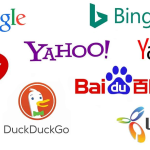As we move through an era marked by rapid technological advancements, the marketing sector emerges as an arena of profound change. Driving this transformation is artificial intelligence (AI). Through its swift adoption and milestones like ChatGPT achieving record user growth in record time, AI is revolutionizing traditional marketing paradigms. Today, marketers across the globe are confronted with pressing questions that have far-reaching consequences for the future. This article aims to explore these crucial inquiries, providing insight into the evolving dynamics of marketing as we move forward.
Whose Responsibility Is AI Anyway?
At the heart of this transformation is a critical question: Who should spearhead AI initiatives in an organization? The answer is far from straightforward. As we venture deeper into understanding our customers, the demand for more nuanced data grows. For instance, consider the intricacy of sending a timely oil change discount to a car owner. This seemingly simple act of personalization requires access to detailed information, such as odometer readings or service history, posing challenges to data acquisition and management. Who is responsible for gathering this data, and how do they go about it in an ethical way?
Marketers, who have historically ignored this issue, can no longer afford to do so. The urgency driven by AI’s capabilities to enhance consumer experiences demands a strategic approach to data that transcends traditional roles, perhaps calling for reevaluating authority and responsibility within organizations.
How Will This Come Across?
Navigating the ethical landscape of data management presents a formidable challenge for marketers today as well. Discussions on ethical guidelines involve wrestling with nuanced decisions about how and when leveraging consumer data in marketing efforts is acceptable. The complexity doesn’t end with deciding on your data use policies. There’s a critical step that often becomes a hurdle: being transparent with consumers about how their data is being utilized. This level of openness isn’t just about legal compliance; it emerges as a potent brand differentiator in a crowded market.
Additionally, the authenticity consumers demand from influencers and brands alike elevates the stakes. The dialogue around how a company intends to use consumer data can significantly impact consumer trust and loyalty. There is a tangible benefit in demystifying data practices for the consumer, removing the fear and skepticism that often clouds perceptions of data privacy. Yet, this is easier said than done. The real challenge lies in maintaining this honesty and transparency consistently. History shows us that breaches in this trust, often stemming from a lack of clarity or honesty about data practices, can severely damage a brand’s reputation.
Are We Behind Already?
Moreover, the rapid evolution of technology instills a sense of urgency and fear—a dual-edged sword where the fear of investing in solutions that may quickly become obsolete is matched only by the fear of missing out on the next technological breakthrough that could render today’s efforts futile. This fast-paced change not only creates a climate of uncertainty but also emphasizes the importance of achieving a single view of the customer to fully leverage technological advancements. The quest for this comprehensive customer understanding adds another layer of complexity, urging organizations to consider whether to invest in developing AI-driven strategies now or to wait for a more stable solution to emerge.
Amidst the change, leaders are faced with the daunting task of ensuring their investments in technology will deliver lasting value. With the landscape shifting so rapidly, the likelihood that current innovations may soon be outdated by new developments looms large. This predicament raises a critical question: Do you forge ahead, dedicating resources to solve these problems now, with the risk that an imminent technological advancement could make all current efforts obsolete? Or do you hold off, waiting for a solution that may never come, potentially missing the opportunity to advance?
What Are Our Consumers Not Telling Us?
The advent of AI-driven marketing has brought to light significant challenges in maintaining consumer trust and managing brand perception. The COVID era offered a stark illustration of these challenges, with instances of fake accounts and misleading content, such as the widely shared image of the Pope in a puffer coat, demonstrating how easily digital content can be manipulated. This has underscored a critical period of adjustment for consumers, reminiscent of the early days of the Internet when users had to learn that not everything they read online was true. As we approach more politically charged periods, like election cycles, the potential for disruption by actors with no financial incentives but rather an intent to sow discord is increasingly likely.
This scenario suggests an inevitable reality: malicious activities aimed at deceiving or misrepresenting brands will occur. For marketing leaders, this highlights the importance of vigilance regarding their brand’s online presence. Employing strategies such as social listening and proactive PR crisis management becomes crucial in preempting and addressing instances of brand misrepresentation. Drawing a parallel to cybersecurity, where it’s often assumed a hack is inevitable, brands must similarly prepare for the eventuality of being impersonated or targeted by disinformation campaigns. This preparation involves not only having a crisis management plan in place but also reevaluating and designing business processes to maximize the benefits of AI while safeguarding against its potential pitfalls.
A Look Ahead
My prediction is that this year, especially during the election cycle, individuals will exhibit heightened sensitivity to how they’re being targeted. As marketers, we now possess the unprecedented capability to elevate our narratives to levels previously unattainable. While I believe this heightened sensitivity among consumers may be temporary, it’s important to acknowledge that this will be a particularly delicate year. We should anticipate unexpected reactions and possibly even surprising flare-ups in response to marketing strategies.
Integrating AI into marketing strategies offers unparalleled opportunities for innovation, efficiency, and personalization. However, it also brings to the forefront ethical considerations that must be navigated with care. For marketing leaders, the future entails a strategic balance between leveraging AI for business growth and ensuring ethical integrity and consumer trust. This calls for a thoughtful approach, ensuring that we navigate this sensitive landscape with care and precision.
©2024 DK New Media, LLC, All rights reserved.
Originally Published on Martech Zone: A Discussion on Ethics and Algorithms in AI-Driven Marketing














